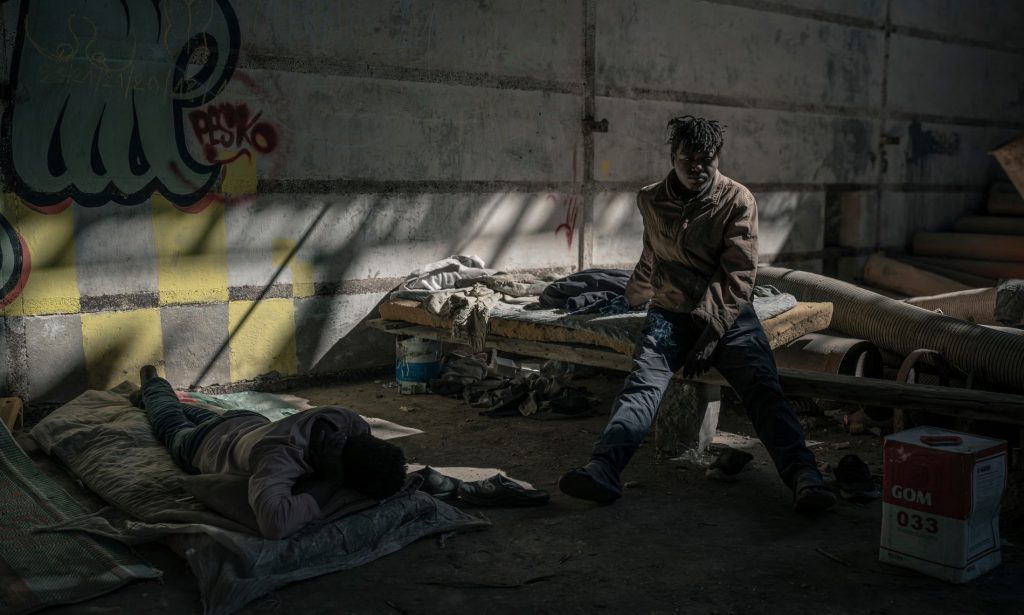A group of migrant women and children from sub-Saharan Africa has been detained in Tunisia after being arrested for begging in Tunis. The incident, which took place last week, has been described by civil society organisations as unusual and very worrying because it exposes the families to possible expulsion toward the Libyan border. Many rights groups say this would violate international law and put the migrants in danger.
The case began on 13 November when a 26-year-old man from Sierra Leone returned home from work and discovered his wife and their one-year-old daughter missing. He searched everywhere and only found out the next day that plainclothes police officers had arrested them at Barcelona Square, a busy area in central Tunis. According to what he was told, the officers did not show any form of identification before taking his wife and child away.
The family had been living in Tunis for four months after leaving the Sfax region due to repeated police raids on informal migrant camps. Life in the capital has also been complicated for them. Because the Tunisian authorities introduced strict rules in mid-2023 to stop departures to Europe, many migrants cannot access work or receive money from their families abroad. The man explained that he depends on small jobs, and his wife begs when necessary because they have no other way to survive.
The woman and child were taken to the El Ourdia detention centre in the southern suburbs of Tunis. Inside the centre, they joined 16 other migrant women and 23 children, some of whom have been separated from their parents. Human rights groups say this is the first time they have seen such a large number of women and children detained specifically for begging. An activist said the move marks a new and dangerous direction in Tunisia’s treatment of migrants.
Normally, begging is considered a minor offence under a colonial-era law, and people—especially mothers with children—are usually released quickly. However, this time, the situation is very different. Rights workers say Tunisia is escalating its actions against migrants despite signing multiple international agreements that protect vulnerable groups such as women and children. They believe the arrest of these families shows a broader crackdown.
The migrants have also spoken about the alarming conditions inside the detention centre. Sarah, the Sierra Leonean woman, said that there is not enough food, clothes, or beds for everyone. On 16 November, a video shared by migrant rights advocate David Yambio and the collective Refugees on Tunisia showed women and children squeezed into a small room with only a few beds. The footage confirmed that the centre is overcrowded and not fit to hold families for long periods.
International organisations such as the UN Human Rights Office, UNHCR, UNICEF, and the International Organisation for Migration (IOM) have all been notified about the case. However, activists say there has been no visible progress. The families remain detained at El Ourdia and have not received any update about their situation or any sign of release.
Many organisations fear that the families could soon be moved toward the Libyan border, a place where a large number of migrants have been abandoned in the past months. Conditions at the border are extremely dangerous, and migrants often end up stranded without food or water. Rights groups warn that sending women and children there would be a serious violation of human rights and could lead to life-threatening consequences.

